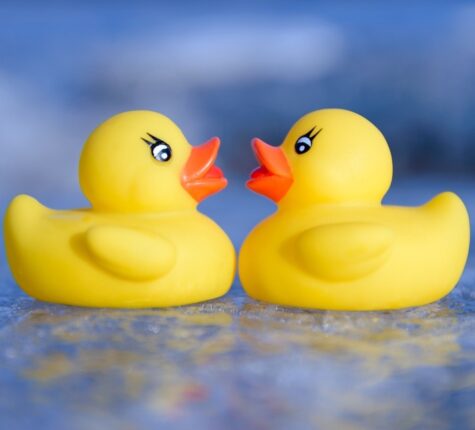
Dating with different interests? Here’s what to consider
“Couples don’t need to have anything in common,” said a male character in a novel I read recently. “The man can go to his club in the evenings while the woman knits or watches television.” Contrast this with a real-life couple I read about who made a vow they would only have interests or friends or pastimes they both enjoyed. If one of them didn’t like whatever it was, the other would immediately give it up in case it interfered with their love. The first example gave me a good laugh and the second gave me claustrophobia. It also got me wondering: is having the same tastes as your partner relevant when it comes to relationships? What should you do about dating with different interests?
I asked couples at a range of relationship stages for their opinions. Would they only want to do things they both enjoyed? Had marriage changed their views? Did they believe dating with different interests could work?
News from the frontline
While one couple did roll out an exhausting list of shared activities I found it was much more common for couples to overlap in some areas but also have their own individual likes. Cara-Louise comments that while she and her fiancé “are into very different music and hobbies, we respect each other’s passions and learn from each other.”
 Janey, who describes herself as “married a LOOOOOONG time” clearly thrives on Vive la différence! She explains, “I like rather plain food, my husband likes food that blows the roof of his mouth off. He likes books with exploding helicopters on the front, I like books with drifty girls on the front. He loves cheese. I loathe it. And I love him very much!”
Janey, who describes herself as “married a LOOOOOONG time” clearly thrives on Vive la différence! She explains, “I like rather plain food, my husband likes food that blows the roof of his mouth off. He likes books with exploding helicopters on the front, I like books with drifty girls on the front. He loves cheese. I loathe it. And I love him very much!”
One wise word of warning which emerged was that if someone has a hobby you don’t share that they’re absolutely obsessed with and which takes up a lot of their time, that may not work. And it should go without saying that spouses have to reject becoming involved with a fellow hobbyist to the detriment and destruction of their marriage commitment.
Phil, married for many years and father to two young adult sons, says, “I don’t think shared interests or tastes are vital, as long as you have an emotional rapport and respect each other’s differences.”
Having a similar worldview means a lot in a marriage. Babs, who has been together with her partner for fifteen years, sums it up: “A shared worldview is paramount. It has served our relationship well. To live according to a shared ethos and principles. For us this also manifests in how we share/care with friends and family.”
Beware Hollywood
La-La land may feed us subliminal messages that we should have a perfect ‘soulmate’ who is everything to us, but my experienced informants beg to disagree: “I think that’s unrealistic and potentially destructive,” comments Phil. “We all need our own space.”
“Though some shared interests are good,” says Cath, who has been married to Martin for 16 years, “different interests add, well, interest to a marriage.”
From my own seven-years-married viewpoint, this rings true. My husband and I both like wining and dining, travelling, and people-watching but we also like to do our own thing: sport and music for him, reading and writing for me. Coming back together we find we then have something new and fresh to share with each other. Result: our differences enrich the quality of our marriage.
Rob testifies to something similar in 34 years of happy marriage: “We have hardly anything ‘in common’, conventionally speaking. Our differences mean we both bring different skills and resources to the table. We are stronger together than we would be apart.”
Differences don’t equal division
 So, avoid a knee-jerk rejection of someone because they don’t match 100% when it comes to interests. Read up on the ‘Mini-Me’ tendencies that can afflict dating behaviour without us even being aware of it, especially when it comes to dating with different interests.
So, avoid a knee-jerk rejection of someone because they don’t match 100% when it comes to interests. Read up on the ‘Mini-Me’ tendencies that can afflict dating behaviour without us even being aware of it, especially when it comes to dating with different interests.
Accept that both you and those you meet are multi-faceted personalities, bound to have both similarities and differences. Be open-minded in trying new things. But if something isn’t for you, this doesn’t mean the relationship has no potential from the outset. ‘Sharing’ in this case can simply involve the willingness to listen supportively to your partner about their interests, a ‘turning towards’ rather than ‘turning away’ from each other.
You will find that, instead of fixating on a specific life with an idealised partner, this gives you the chance to build something completely unique to you as a couple that combines both personalities and interests.
What’s your approach to dating with different interests?
Enjoyed reading ‘What to consider if you’re dating with different interests’? Read more by Katrina Robinson

